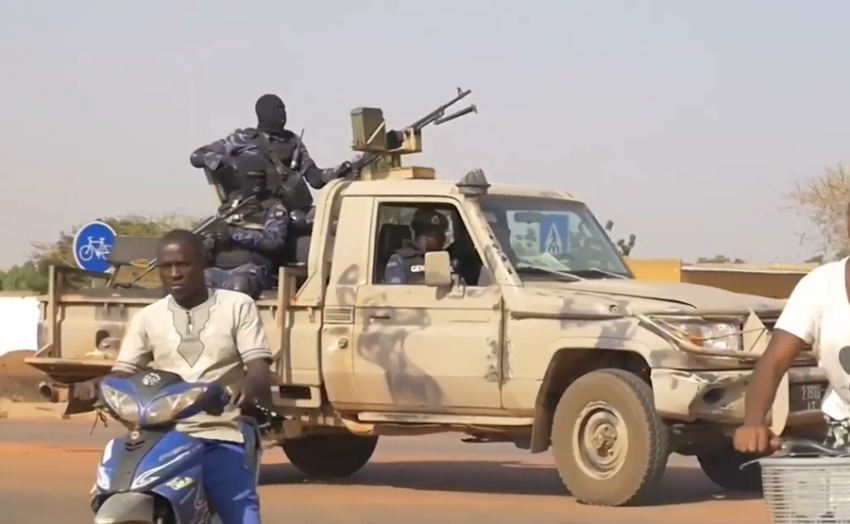
Burkina Faso’s government decided on January 18 to ask French military forces to leave the country within a month.
This decision was made by the government of Captain Ibrahim Traoré, who staged the second coup of 2022 in Burkina Faso in September to remove Lieutenant Colonel Paul-Henri Sandaogo Damiba, who had seized power in a coup d’état in January.
Traoré, now the interim president of Burkina Faso, said that Damiba, who is in exile in Togo, had not fulfilled the objectives of the Patriotic Movement for Safeguarding and Restoration, the name of their military group. Traoré’s government accused Damiba of not being able to stem the insurgency in the country’s north and of colluding with the French (alleging that Damiba had taken refuge in the French military base at Kamboinsin to launch a strike against the coup within a coup).
France entered the Sahel region in 2013 to prevent the southern movement of jihadist elements strengthened by the war in Libya, prosecuted by the North Atlantic Treaty Organization (NATO).
In the past few years, anti-French sentiment has deepened in North Africa and the Sahel. It was this sentiment that provoked the coups in Mali (August, 2020 and May, 2021), Guinea (September, 2021), and then in Burkina Faso (January, 2022 and September, 2022).
Mali’s government ejected the French military in February 2022, accusing French forces of committing atrocities against civilians and colluding with jihadi insurgents. Burkina Faso has now joined Mali.
The ejection of France does not mean that there will be no NATO countries in the region. Both the United States and Britain have a large footprint from Morocco to Niger, with the US trying to draw African countries into its contest against China and Russia. Regular trips by US military leaders — such as US Marine Corps General Michael Langley (commander of US Africa Command) to Gabon in mid-January — and by US civilian leaders — like Treasury Secretary Janet Yellen to Senegal, South Africa and Zambia — are part of a full-court press to ensure that African states forge closer ties with the US and its allies over China.
The designation of Russia’s Wagner Group — which is said to be operating in the Sahel — as a “transnational criminal organization” by the US and the US-Africa Leaders Summit, held in mid-December, are both attempts to draw African states into a new cold war.
Almost half of the Burkinabé population lives below the poverty line, and “more than 630,000 people are on the brink of starvation”, according to the United Nations. The country is, however, not poor with its gold export reaching US$7.19 billion in 2020. These gains do not go to the Burkinabé people but go to the large mining companies. Ejection of the French military will not be the answer to these deep-seated problems faced by Burkina Faso.
[This article was produced by Globetrotter. Vijay Prashad is an Indian historian, editor, and journalist. He is a writing fellow and chief correspondent at Globetrotter. He is an editor of LeftWord Books and the director of Tricontinental: Institute for Social Research.]